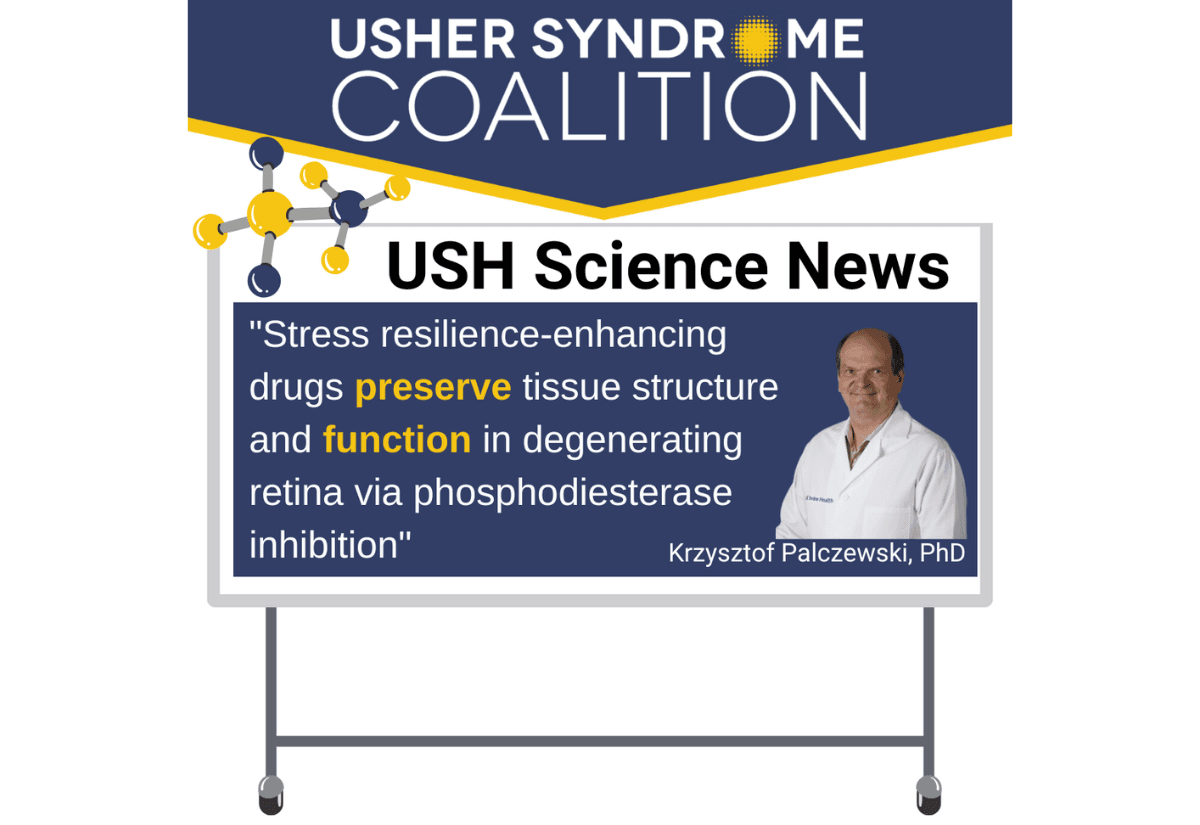
Progressive retinal diseases such as age-related macular degeneration (AMD) and retinitis pigmentosa are caused by retinal degeneration due to apoptosis, or cell death due to cell stress. Cells can become imbalanced or stressed due to unfavorable environmental conditions such as exposure to bright lights, smoking or high alcohol consumption. When stressed, cells will either survive by activating a pathway that allows the source of the stress to be neutralized, or they will die via apoptosis.
In this study, researchers focused on a class of enzymes called phosphodiesterases (PDEs), which are commonly present in the human body. These enzymes are capable of activating distinct pathways that promote cell survival along with other pathways that trigger cell death.
They discovered inhibition of PDEs with targeted drug therapy led to cell adaptation and survival, sometimes to a cell state that is even healthier than unstressed cells.
What this means for Usher syndrome: Drug therapy is a common and accepted way to manage disease treatment. The promising results from this study indicate that one day, patients with retinal degenerative disorders may be able to slow vision loss and retinal degeneration through a prescribed drug therapy or regimen.







